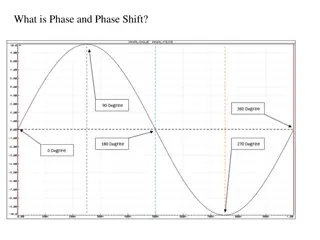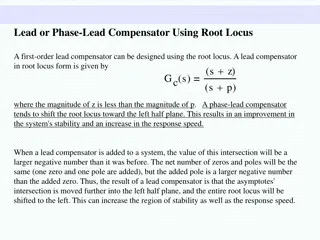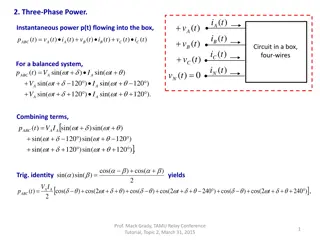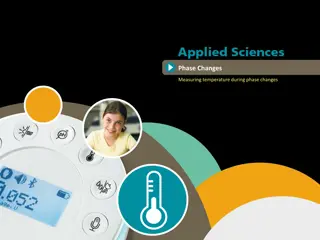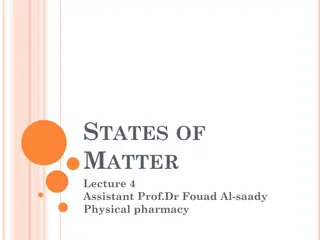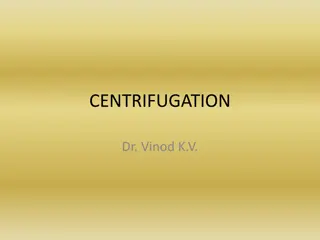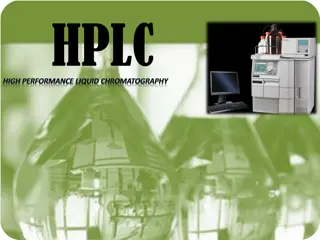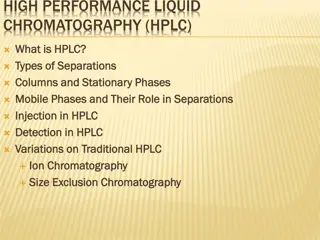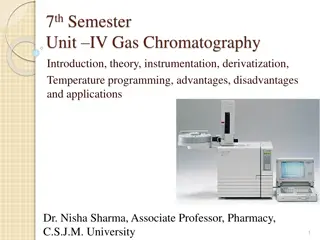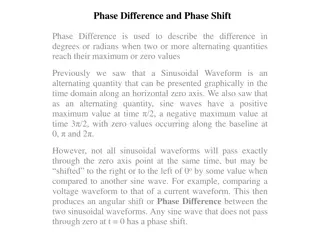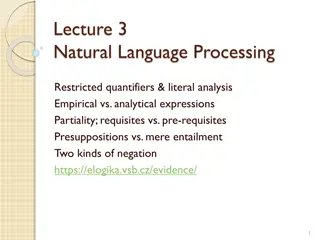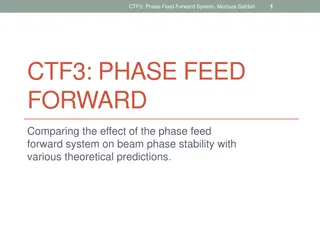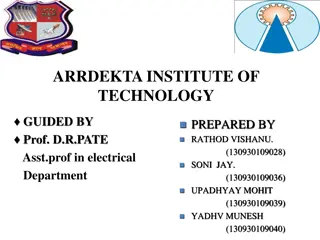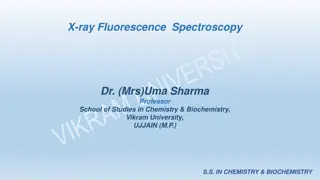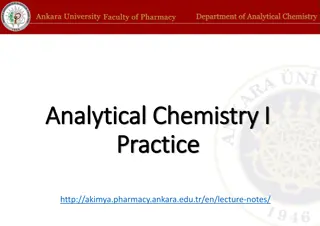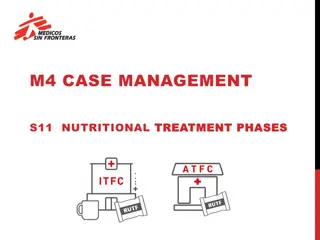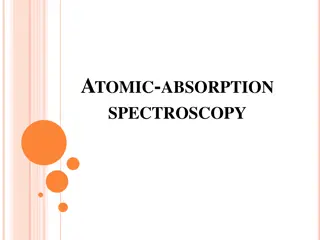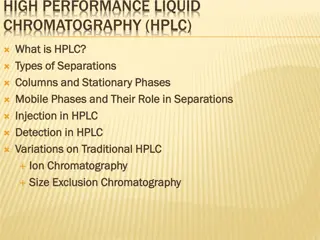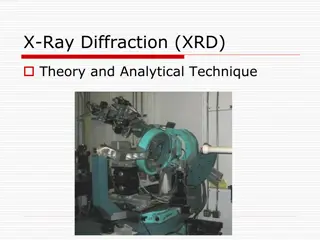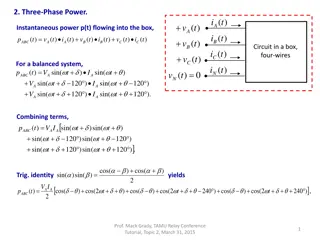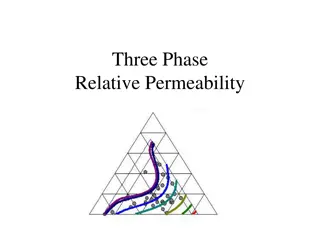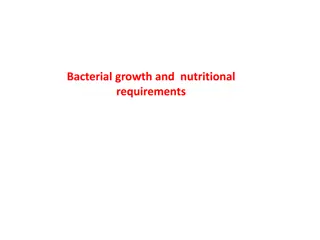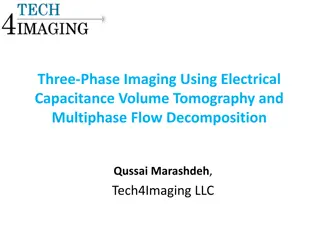Understanding Chemical Potential and Phase Equilibria in Solution Thermodynamics
The chemical potential and phase equilibria in solution thermodynamics are crucial concepts for understanding the behavior of mixtures at varying compositions and conditions. By investigating the fundamental property relation, partial molar properties, and the role of Gibbs energy, we can grasp how
5 views • 25 slides
Kohinoor Teiko Hinjewadi Phase 2 Pune E-Brochure
Introducing Kohinoor Teiko Phase 2, Hinjewadi, Pune's latest new launch project. Experience contemporary living with spacious 2 BHK and 3 BHK flats designed for modern lifestyles. Located in the heart of Hinjewadi, enjoy seamless connectivity, world-class amenities, and unparalleled comfort. Don't m
1 views • 12 slides
Silent Generators Market to be Worth $5.6 Billion by 2031
Silent Generators Market Size, Share, Forecast, & Trends Analysis by Portability (Portable and Non-portable), Sound Level, Power Source (Diesel, Gasoline, Natural Gas), Phase, Single Phase, Three Phase), Power Output, and End User (Residential, Commercial) - Global Forecast to 2031\n
0 views • 4 slides
Understanding RC Phase Shift Oscillators
Dive into the world of RC phase shift oscillators, exploring the concepts of phase and phase shift in electronic circuits. Learn how cascading RC networks can achieve specific phase shifts, the role of impedance, and the practical applications of RC feedback networks in oscillator circuits. Discover
1 views • 18 slides
Godrej The Gale Hinjewadi Phase 1 Pune E-Brochure
They are introducing Godrej The Gale, a new launch project in Hinjewadi Phase 1, Pune, offering luxurious 2 and 3 BHK apartments. Nestled in the heart of Hinjewadi, Pune's bustling IT hub, this project promises a perfect blend of modern living and convenience. With contemporary design, spacious inte
2 views • 11 slides
Teacher Certification and Evaluation Program Phases Overview
The Teacher Certification and Evaluation Program outlines requirements for eligible teachers in GPISD, emphasizing ESL/Bilingual certification and proficiency ratings in T-TESS evaluations. Phase I focuses on ESL/Bilingual certification by January 1, 2024, while Phase 2 extends to November 1, 2024,
0 views • 12 slides
Best Agricultural electrician in Tokanui
If you\u2019re looking for an Agricultural electrician in Tokanui, contact Phase Electrical. They work with a high level of professionalism and workmanship, Phase Electrical works on a range of projects, from cow shed fit-outs, to residential electrical work. The versatile team at Phase Electrical h
0 views • 6 slides
Understanding Lead and Phase-Lead Compensators
Lead and Phase-Lead compensators play a crucial role in improving system stability and response speed. By using the root locus and frequency response methods, these compensators shift the root locus toward the left half-plane, adding positive phase over the frequency range. This leads to increased s
0 views • 16 slides
Understanding the Three Stages of Project Life Cycle
The project life cycle consists of three key stages: pre-investment phase, construction phase, and normalisation phase. The pre-investment phase involves objective formulation, demand forecasting, and cost-benefit analysis. The construction phase focuses on building project infrastructure and invest
1 views • 5 slides
Understanding Glycolysis: The Initial Step in Glucose Breakdown
Glycolysis, presented by Dr. Madhu Kumari Gupta, is a crucial process in cellular metabolism that involves the breakdown of glucose to extract energy. This pathway occurs in the cytosol and consists of three main phases - an energy-requiring phase, a splitting phase, and an energy-releasing phase. T
0 views • 12 slides
Understanding Three-Phase Power Systems and Instantaneous Power Flow
This detailed content delves into three-phase power systems, analyzing instantaneous power flow, balanced circuits, and trigonometric calculations. It explores the concept of constant three-phase power and provides insights into the analogy of a piston engine with infinite cylinders. The data includ
2 views • 9 slides
Exploring Temperature Changes During Phase Transitions in Water
Analyze temperature changes in water during phase transitions using an external temperature sensor in a hands-on experiment. Understand the molecular order in different states of matter, the role of heat in phase changes, and the influence of pressure on boiling points.
0 views • 25 slides
Understanding Phase Equilibria in Physical Pharmacy
Delve into the complexities of states of matter, phase equilibria, and the phase rule as explained by Assistant Prof. Dr. Fouad Al-saady in the context of physical pharmacy. Learn about phase definitions, phases in different systems, and examples illustrating phase differentiation in various substan
0 views • 22 slides
Comprehensive Overview of Phase II Periodontal Therapy
Explore the phases, objectives, and treatment methods of Phase II periodontal therapy, including surgical interventions, pocket therapy, and indications for surgery. The treatment plan involves emergency care, nonsurgical therapy, surgical procedures, restorative treatments, and maintenance protocol
1 views • 47 slides
Phase 1 Phonics: Developing Early Listening and Speaking Skills
Phase 1 Phonics, the initial stage of Letters and Sounds, focuses on enhancing children's speaking and listening abilities to prepare them for phonics work in Phase 2. This phase emphasizes tuning in to sounds, listening and remembering sounds, and talking about sounds through various activities des
3 views • 17 slides
Understanding the Applications and Design of Analytical Ultracentrifugation
Analytical ultracentrifugation, a powerful technique in biochemistry, allows for precise measurement of sample properties and characterization of macromolecular complexes. The method is widely used for determining sample purity, equilibrium constants, and assembly mechanisms of biological complexes.
1 views • 17 slides
Understanding Poly Phase Induction Motor Construction
An induction motor is comprised of a stator and rotor, with the stator featuring a 3-phase winding fed from a 3-phase supply. The rotor comes in two types - squirrel-cage and phase wound. The squirrel-cage rotor consists of heavy bars tightly pressed on the shaft, while the phase wound rotor has a 3
0 views • 47 slides
Understanding HPLC: A Powerful Liquid Chromatography Technique
High-performance liquid chromatography (HPLC) is a powerful tool in analysis, offering high performance and speed compared to traditional chromatography methods. It involves separating components through a stationary phase and mobile phase, utilizing adsorption principles for separation. HPLC is wid
6 views • 58 slides
An Overview of High Performance Liquid Chromatography (HPLC)
High Performance Liquid Chromatography (HPLC) is a powerful analytical technique used for separating and identifying compounds in a mixture. It involves a mobile phase and a stationary phase to achieve separation based on different physicochemical properties. The mobile phase plays a crucial role in
0 views • 20 slides
Understanding the Phase Rule in Physical Pharmacy: Two Component Systems and Equilibrium Phases
The Phase Rule is essential in determining the state of a system based on components and phases. This study explores two-component systems in physical pharmacy, illustrating miscibility behaviors and equilibrium phases through diagrams and explanations. Understanding binodal curves, tie lines, and t
0 views • 12 slides
Gas Chromatography: Introduction, Theory, Instrumentation, Derivatization
Gas chromatography is a powerful analytical technique used for separating and analyzing volatile compounds. It involves a mobile gas phase passing through a stationary phase, with components in the mixture interacting differently, resulting in separation. The technique dates back to 1905 and has evo
0 views • 12 slides
Understanding Phase Difference and Phase Shift in Sinusoidal Waveforms
Phase difference and phase shift describe the angular displacement of sinusoidal waveforms in degrees or radians. These concepts are crucial in analyzing the relationship between alternating quantities such as voltage and current. The phase angle determines the shift of a waveform along the horizont
1 views • 26 slides
Training Phase in Teen Challenge Residential Program
The training phase in the Teen Challenge residential program is a crucial period focused on developing drug-free lifestyles, deepening relationships with Jesus, and creating personal recovery and exit plans. Participants follow a structured daily schedule that includes devotions, classes, work progr
0 views • 12 slides
Understanding Empirical vs Analytical Expressions in Natural Language Processing
Restricted quantifiers and literal analysis in natural language processing reveal the distinctions between empirical and analytical expressions. While empirical expressions refer to non-trivial intensions that require empirical investigation, analytical expressions denote constant intensions that ca
1 views • 19 slides
Phase Feed Forward System: Analyzing Beam Phase Stability and Theoretical Predictions
Exploring the impact of phase feed forward systems on beam phase stability through comparisons with theoretical predictions and simulations of increasing limitations. Testing the accuracy of theoretical gain factors and assessing performance using global gain factors. Utilizing specific data files a
0 views • 58 slides
Understanding Three Phase Transformers and Connections in Power Systems
Exploring the fundamentals of three-phase transformers and their connections in power systems, such as star-star, delta-delta, star-delta, and delta-star. Learn about advantages, disadvantages, and applications of these configurations in balanced and unbalanced loads. Discover how three single-phase
0 views • 19 slides
Applications and Importance of X-ray Fluorescence Spectroscopy in Analytical Chemistry
X-ray Fluorescence Spectroscopy (XRF) is a vital analytical technique used for qualitative and quantitative analysis of elements based on their X-ray emission characteristics. Dr. Uma Sharma, a Professor at Vikram University, details various X-ray analytical methods, including X-ray emission, Auger
0 views • 21 slides
Exploring Analytical Chemistry: Course Overview and Objectives
This article provides insights into the field of Analytical Chemistry, outlining a course syllabus, objectives, topics covered, and grading criteria. Analytical Chemistry involves obtaining and processing information about the composition and structure of matter. Analytical chemists play a crucial r
0 views • 15 slides
Understanding Nutritional Treatment Phases in Pediatric Malnutrition
This session covers the different phases of nutritional treatment in pediatric malnutrition programs, focusing on objectives, specifics, and criteria for transitioning between phases. An illustrative case of Annika, a 3-year-old in the Transition Phase, is provided for practical application and unde
0 views • 5 slides
Understanding Atomic Absorption Spectroscopy in Analytical Chemistry
Atomic absorption spectroscopy (AAS) is a valuable technique for determining metal concentrations in samples. This method involves the absorption of light to measure gas-phase atoms, requiring steps like desolvation, vaporization, and volatilization to convert samples into atomic gas. The process ut
0 views • 18 slides
Understanding High Performance Liquid Chromatography (HPLC)
High Performance Liquid Chromatography (HPLC) is a powerful analytical technique used for separating compounds in a liquid mixture based on their interactions with the stationary phase and mobile phase. It involves different types of separations, columns, mobile phases, and detection methods. Isocra
0 views • 20 slides
Understanding X-Ray Diffraction (XRD) Theory and Analytical Techniques
X-Ray Diffraction (XRD) is a powerful analytical technique used to study the crystal structure of materials. This method is based on the principle of X-ray diffraction by crystals, providing valuable information about the atomic arrangement within a material. By analyzing the diffraction patterns pr
0 views • 14 slides
Understanding Three-Phase Power Systems
This content discusses three-phase power systems, including instantaneous power flow, balanced systems, and trigonometric identities. It delves into the concept of smooth running machines in relation to three-phase power, analyzing the constant nature of instantaneous power. The analogies to a pisto
0 views • 7 slides
Understanding Three-Phase Relative Permeabilities in Reservoir Engineering
Explore the application, correlations, and traditional assumptions of three-phase relative permeabilities in reservoir engineering. Learn about saturation-dependencies, occupancy models, and the challenges of measuring three-phase relative permeabilities. Discover how to calculate three-phase permea
0 views • 14 slides
Understanding Microbial Growth: Phases and Dynamics
Microbial growth is defined as an increase in cellular constituents leading to a rise in microorganism size or population. The growth of bacterial cells is characterized by distinct phases such as lag phase and exponential phase. During the lag phase, cells are synthesizing new components before div
0 views • 21 slides
Understanding Bacterial Growth and Nutritional Requirements
Bacterial growth involves processes like binary fission, exponential phase, and stationary phase. Factors influencing growth include nutrient availability, oxygen levels, and toxic waste accumulation. Lag phase precedes exponential growth, where cells prepare for division. Stationary phase occurs wh
0 views • 11 slides
Phase II Trial Design in Oncology Drug Development by Wendy R. Parulekar, MD, FRCP
This presentation covers the pivotal role of Phase II trials in oncology drug development, emphasizing the importance of preliminary clinical efficacy screening, adverse event profiling, mechanism of action understanding, and target population definition. It discusses various Phase II trial designs,
0 views • 76 slides
Mastering Analytical Paragraph Structure for Critical Thinking in Writing
Understanding the foundation of critical thinking in writing through analytical paragraph structure is key to effective communication. Analysis involves exploring the who, what, when, where, and why of a topic, making claims, and drawing connections. Differentiating analytical paragraphs from standa
0 views • 6 slides
Advanced Imaging Techniques for Three-Phase Flows in Reactor Systems
Gas-liquid-solid reactor systems require advanced measuring techniques to understand complex three-phase flows. Multi-Phase Flow Decomposition using Electrical Capacitance Volume Tomography (ECVT) offers innovative solutions for visualizing and quantifying phase hold-up distributions and dynamic cha
0 views • 17 slides
Moving to the Design Phase: Feasibility Phase Checklist
The transition requirements for moving to the Design Phase include the Water Fund being deemed feasible, resources committed for design, and a formal decision made. The Feasibility Phase Checklist covers governance, science, finance, implementation, and communications aspects. The high-level action
0 views • 4 slides



